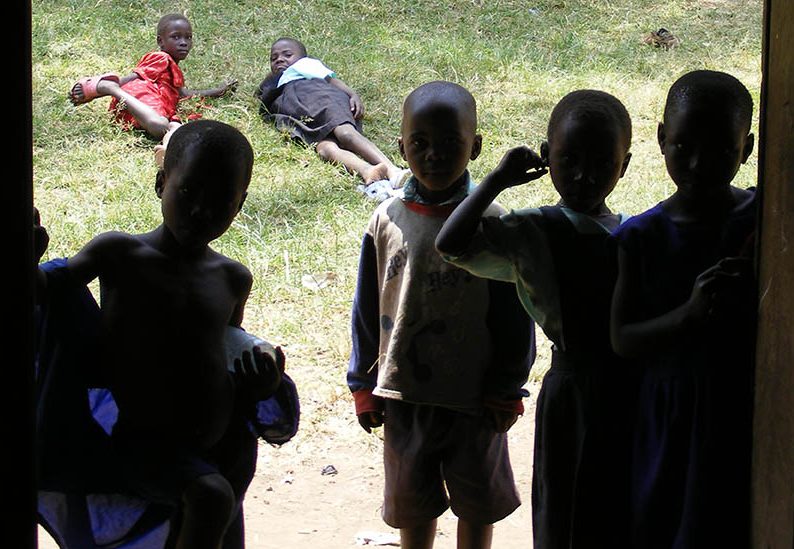
Children aren’t tourist attractions. Why orphanage tours are wrong
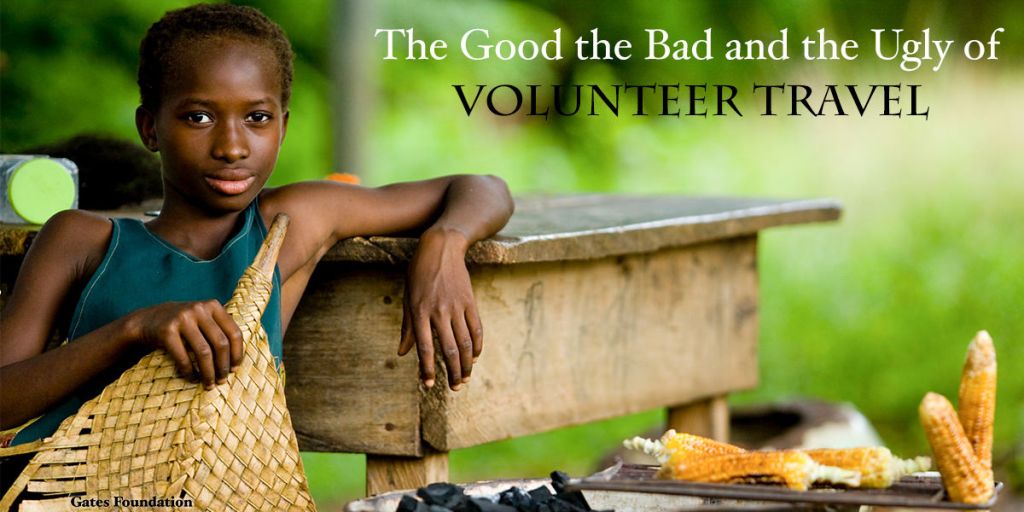
The good the bad and the ugly of volunteer travel. Photo Gates Foundation
Welcome to Diary of a Muzungu! This week’s guest post is by Mark Riley, Co-Founder of Alternative Care Initiatives, an organisation working with the Ugandan government and others on child welfare reforms in Uganda and East Africa. In this article, Mark argues that there are many ways we can help vulnerable children but orphanage tours are not one of them. He asks that we all carefully consider whether a day tour to an orphanage or volunteering with orphans is really the best way to support these children.
Why orphanage tours should not be on a tourist itinerary
On the face of it, you would think that volunteering in an orphanage is a ‘win-win’ situation for everyone involved. On one hand, volunteers can do something they feel is making a positive impact and experience something completely different to their own world, while the children are nursed, cuddled and cared for by a volunteer. The tour operator, by linking the two together, delivers a package that everyone is happy with. So, what could be wrong with that?
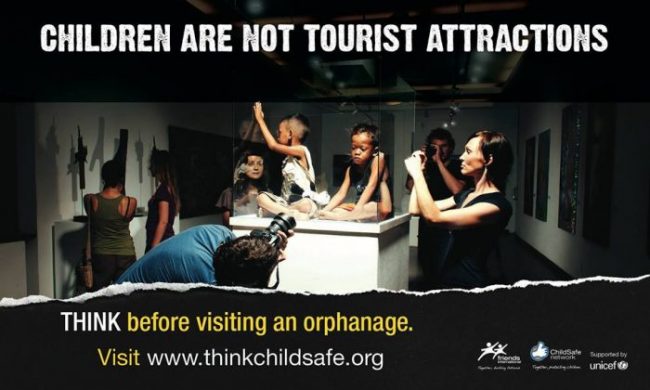
Think before you visit or volunteer at an orphanage… is there a better way you can support these children?
It does not take much research to understand the way in which volunteering in orphanages can often have devastating and long-term effects on the children.
Research on the subject is overwhelming and various studies support this conclusion. A report by Better Care Network demonstrates that children living in institutions do not always receive high quality interaction when they most need it and, as a result, are at much higher risk of long-term developmental vulnerabilities. Also, there is evidence that children growing up in institutions do not manifest these development handicaps until adulthood when they try to integrate within society. As these children pass into adulthood and become independent (often with difficulty) they look at their peers who have been brought up in communities and realise their sense of loss and disconnection.
Orphanages, orphanage tourism and volunteering: the case of East Africa
In East Africa, there are situations where orphanages exist solely to provide a volunteering and mission experience. Additionally, although reunification, foster care and domestic adoption are on the rise across East Africa, orphanages that offer voluntourism packages have little or no incentive to reunify children under their care with their families or find family-based alternatives while volunteering and mission trips exist, since volunteers and mission trips would be redundant if the orphanages were empty!
“… Not only does [volunteering] encourage the expansion of residential care centres, but it also makes children [more] vulnerable to abuse.”
Where are the children’s voices?
Often the voices that are unheard in this debate are of the children who experience volunteers and mission trips while they are in orphanages. In comparison to the reportage or blogs of volunteers, there is minimal record of the experience of the children they visit.
In 2016, Stephen Ucembe, founder of Kenyan Care Leavers, wrote very eloquently about growing up in a Kenyan orphanage and the negative impact that volunteers and mission trips had on his childhood.
“Dressed in a uniform of blue shorts and yellow and blue t-shirts branded with the name of the orphanage, we were gathered under a tree for shade, standing at the centre of the institution to wait for the visitors. We never called them volunteers then, but visitors..[…]
The institution staff had taught us a routine. They paraded us, and as soon as the visitors arrived in tour vans we had to exude joy. Indeed, we jumped up and down, and raptured in unison with song and dance that welcomed them.
We knew that the only way to ensure they came back again to help the institution was by how much they smiled at our entertainment, and by the tears, sadness or sympathy that came when they were told that we were “orphans”. I remember the senior staff on duty standing at the centre of a circle of volunteers pronouncing how some of us had been abandoned by their parents, how others had been picked from the streets and others rejected by families.
Silently I felt sad and miserable to have people gawk at me and have cameras flashing at our faces. Most of the volunteers were taken round the institution to see where we slept, where our food was cooked, and told of upcoming projects. Some committed to help, and others gave a one off donation. Some of these encounters were brief, they pulled down their sunglasses, walked back to the vans and from the vehicles they waved us goodbye. At this point some of us had gotten used to their coming and going, but others not – especially the younger ones: tears knocked at their eyelids. They tried not to cry in an environment where crying was almost taboo. This practice with visitors had become a routine that made many of us feel even more alienated, isolated, stigmatized, helpless, hopeless, and weak.”
Although Stephen’s account should have been a wake-up call for the tourism industry, this was not so. In fact, one global tour operator that offers ‘orphanage volunteering’ asked for Stephen’s personal testimony to be removed from the website. This demonstrates that some orphanages, especially those that offer voluntourism, are money-making ventures with the tourists deemed more important than the voice of individuals like Stephen and those he speaks for.
Alternative Care Initiatives, a Ugandan NGO, has a Care Leavers programme, which has engaged with over 100 young people who have lived in various care facilities in Uganda. They have made some startling findings with regards to volunteering and mission trips. Morris, a member of the Care Leavers’ team, grew up in what many consider a ‘good’ orphanage in Jinja. Although the orphanage was well funded and Morris was well fed, attended a good school and did not personally experience the levels of abuse and neglect that many others report, Morris still believes that not enough was done to support him and his siblings to remain in their community. This lack of support, Morris believes, contributed to the fractured relationship he has with members of his extended family. In retrospect, he feels that the constant flow of Western mission trips and volunteers, while exciting at first, distorted his view of foreigners and of the world. The constant thread of the experiences of children who grew up in the orphanage is that the foreigners came with gifts and kindness, and then left as quickly as they came, which left then bereft and with a twisted view of the world.
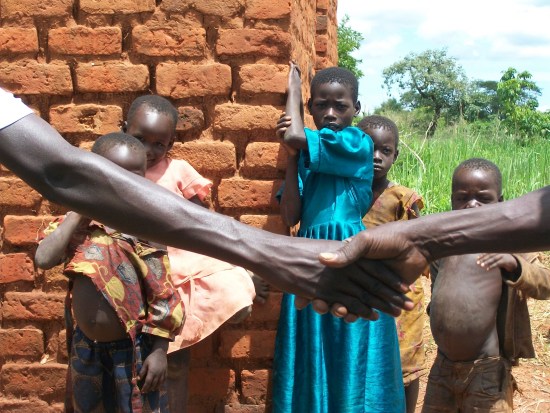
Children in Ongako sub-county, Gulu, Uganda. PHOTO Jan Sharp
Morris avers that some of the people he knew in care, especially those growing up in children’s villages, were neither Ugandans nor Westerners and therefore always felt like ‘hybrids’. They witnessed and experienced much of Western culture but cannot attain or reach it. Likewise, they don’t really feel Ugandan. The idea of going to the village and helping communities ‘dig’, which is what most Ugandans from rural communities do, is appalling to them. It’s just not what they signed up for. Thus the orphanage system is creating long-term problems and disenfranchising people from their communities and roots.
These anecdotes demonstrate how volunteers and mission trips can have devastating and long-term impact on children and require a change of mind-set as well as the rigorous enforcement of child protection policies. The UN Guidelines on Alternative Care prioritise family strengthening and family-based care over institutional care, and are now widely accepted and incorporated into national policies and frameworks. Visiting orphanages is not only negative for the children but also against global, regional and country-specific polices and laws. It is encouraging that Uganda, Kenya, Rwanda and Tanzania, are fully embracing family-based care and recognising that orphanages are not a part of the long-term, child protection system. However, authorities in all the countries need to do more.
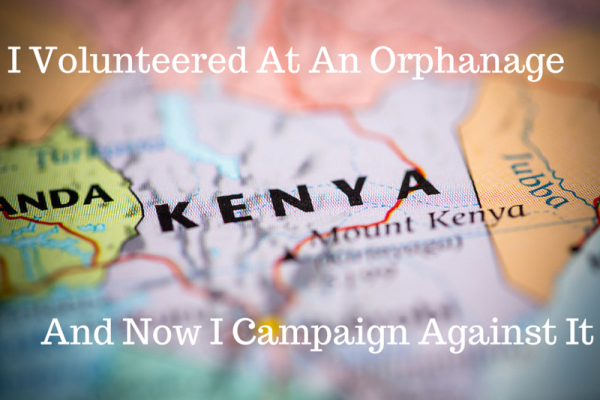
Anna McKeon:”I volunteered at an orphanage and now I campaign against it.” Click here to read the personal account of an inexperienced international volunteer in orphanages in Thailand and Kenya. She shares the top five lessons she learned about volunteering and why it is harmful to volunteer in childcare institutions #StopOrphanTrips
Although this sort of volunteering in orphanages is declining globally, voluntourism and mission trips still play a central role in sustaining orphanages in East Africa and this will continue to negatively affect the wider child protection system. Consequently, there is need for tourism stakeholders to promote alternative voluntourism packages. Government agencies should enforce child protection policies and ensure orphanages adhere to national laws as well as global best practices, which will minimise the exposure of children, especially vulnerable ones, to social, cognitive, physical and psychological harm.
How can the tourism industry help?
East Africa has some of the world’s most amazing people, wildlife and landscapes and a visitor to this region never leaves disappointed. However, children should not be offered as a part of the tour itinerary. There is an abundance of satisfying activities which do not include visiting and sustaining orphanages and the damage that comes with such visits. Interested visitors who want an authentic holiday experience can take advantage of homestays or consider skills-based voluntourism in various sectors. This is not to suggest that tourists and other initiatives should not help children and the community – rather help in the right way.
DON’T
- – Even if an orphanage says it is government-approved, don’t visit.
- – Don’t put orphanage tours on your itineraries.
- – Do not attend orphan dance shows. They do not give vulnerable children the care they need.
- – Volunteers should not work directly with children.
Volunteering with children may feel good but could be harmful. There are some better ways to help them.
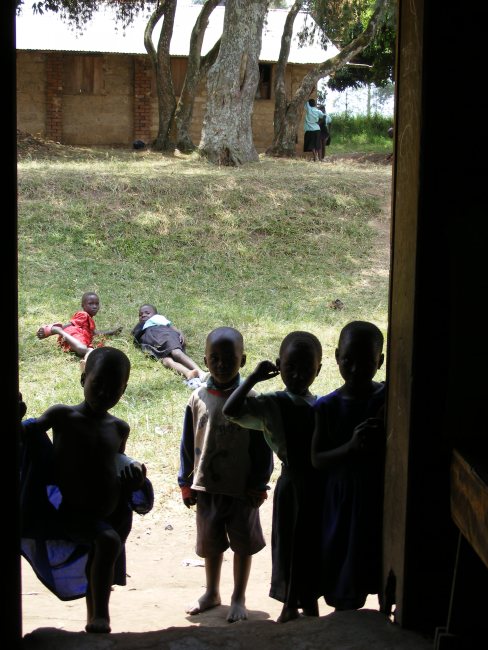
A group of curious Ugandan children peer in the classroom of a village school
DO
- – If tourists want to meet local children and young people, this should be arranged through schools, churches and communities.
- – Visitors can ask how they can share their professional skills with the local staff who care for these children.
- – The placement of volunteer (professionally qualified) medical or childcare experts in orphanages may be acceptable with a medium or long-term commitment.
- – Tourism industry professionals and tourists who are interested in supporting children may wish to donate to support the work of the organisations listed below.
- – Please share and discuss the messages discussed in this article.
References and further reading
Mark Riley, Alternative Care Initiatives “Volunteers are fuelling the growth of orphanages in Uganda. They need to stop.”
Better Care Network. (2014). Better volunteering, better care
Fox, N., Almas, A., Degnan, K., Nelson, C., & Zeanah, C. (2011). The effects of severe psychosocial deprivation and foster care intervention on cognitive development at 8 years of age: findings from the Bucharest Early Intervention Project. Journal of Child Psychology and Psychiatry: 52(9), 919928.
United Nations. (2010). Resolution 64/ 142: Guidelines for the alternative care of children. UN: New York.
You can follow #StopOrphanTrips to read more research, advice and personal testimonies.
To contact Mark Riley directly tel +256 (0) 7842 50921 or email mark.riley@alternative-care-initiatives.org
This is a summary of an article that was first published in the East Africa Sustainable Tourism Report Issue 6, 2017. Sustainable Travel & Tourism Agenda – STTA
The Muzungu: thanks Mark for sharing your insights. I remember watching an orphan dance once and wondering why the kids looked so uninterested in us. I thought they would be happy to see us. Now I understand how many times visitors have come and gone in their young lives, and how that must affect them.
If the issue of orphans and young children interests you, read a related guest post Ugandans Adopt – “Why I do what I do.”









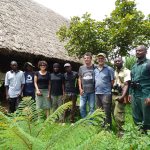

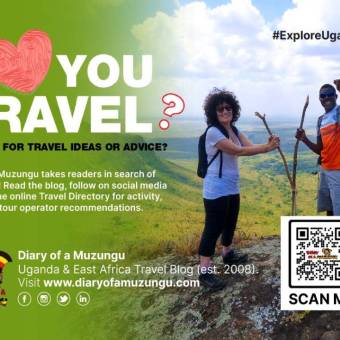
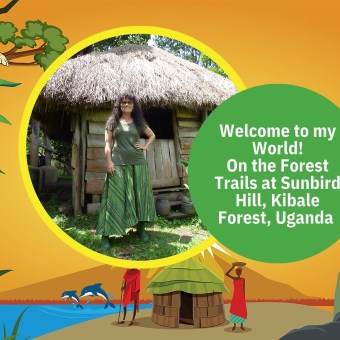
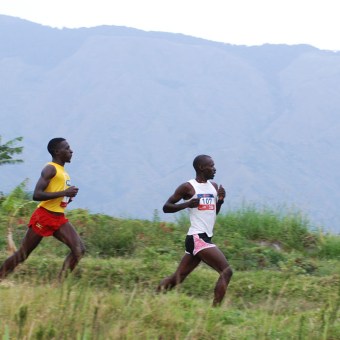

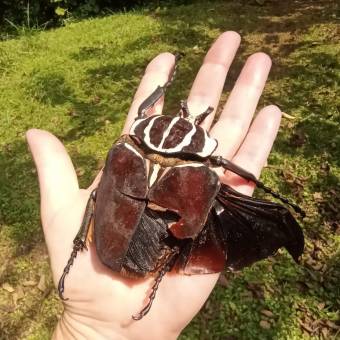












This needed to be said! Thank you for this insight.
Very true. I advise anyone visiting East Africa not to get trapped into this kind of “tourism”. It’s very wrong!
If it’s a long-term volunteering it’s okay but tourism is just not okay.
The evidence from Kenya is alarming – Mark told me how a map of Kenya’s orphanages shows highest density around the country’s tourism areas. This shows how lucrative tourism is for sustaining orphanages… disturbing.
These are wise words. Our family is running a private home for orphanages for more than 20 years in Uganda. We have about 20 kids and our mission is to get them in a family asap. And it works. We just monitor their future. We don’t accept fundings from other people. We take care about ourselves. We don’t need container help our other help. It’s not good to give a signal that Africans always needs help from others. It’n not true. Our kids are proud of themselves and they are selfsupporting at a very young age. Our project is all about them, not about us.
Hi Joris, thanks for dropping by. Good luck with your project 🙂
Interesting post! Thank you so much !
“Orphanages have no place in an Africa fit for children” – an insightful article by Stephen Ucembe of Hope and Homes for Children
“In many countries in Africa, orphanages remain a legacy of colonial rule that continue to undermine traditional family and community responses to caring for vulnerable children. In Rwanda for example, the Belgian colonial rulers placed children without parental care in state-run institutions…”
“In the post-colonial era, the use of orphanages as an imported solution to child protection challenges in Africa has continued. In this way, well-meaning donors who fund such solutions have been key players in the weakening of the family and community structures which, in turn, drives the further proliferation of orphanages.”
https://www.hopeandhomes.org/blog-article/orphanages-have-no-place-in-an-africa-fit-for-children/
#PartOfTheFamily
Great to see that global travel Fodor’s have published this:
“If You Think Traveling to Visit Orphanages Is Helpful, It’s Time to Reconsider”
“The #endorphanagetourismcampaign, which launched earlier this year at the six busiest U.K. airports including Heathrow and Gatwick, plus Eurostar terminals, involves officers warning passengers traveling to popular “orphanage tourism” hotspots like Cambodia, Thailand, Nepal, India, Uganda, Kenya, and Sierra Leone. According to analysis by the research firm Censuswide, 57% of Brits have or would like to donate money to institutions or go to one. But alarmingly, three quarters don’t know that these “orphans” have families, the data also found. The organizations involved in the campaign say that already they’re changing popular perceptions of orphanages among holidaymakers.”
Read the full article here:
https://www.fodors.com/news/news/orphanage-tourism-is-misleading-and-may-ultimately-be-harmful